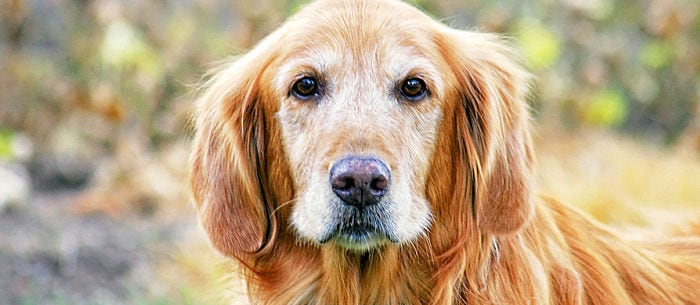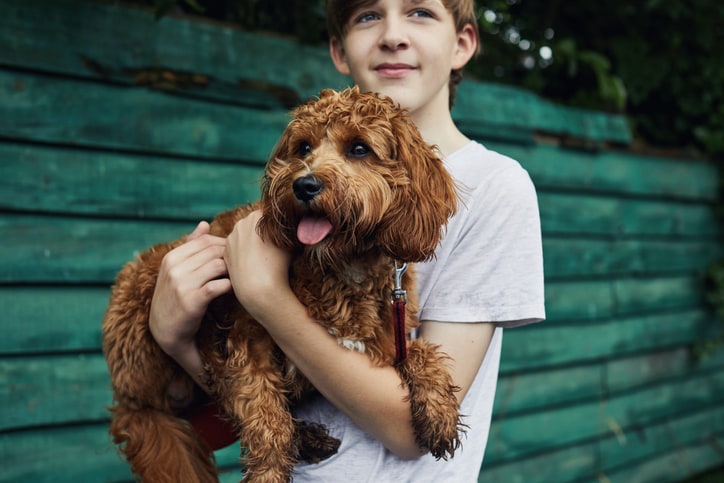You saw it. It really happened. He ate it. So, why do dogs eat poop? While sometimes you think of your dog as a person — especially when he cocks their head and looks at you in that understanding way — the minute you see him engaging in this behaviour, you realize he’s all dog.
Weird as it may seem, there is an official answer for your question why do dogs eat poop? The technical term being coprophagia, why would man’s best friend would engage in something so unsavory? Here’s the scoop on this odd but common doggie behaviour.
Potential Reasons
- There May be a Medical Problem
If your notice your dog eating poop it could be a sign of a medical problem, like poor nutrition. It’s therefore important to notify your vet, who will be able to determine if a nutritional imbalance is present. During the check up, your vet may recommend a deworming or may test a stool sample to ensure no diseases were transmitted.
- It Could be a Cleaning Habit
Was your dog kept in a small cage? When dogs don’t get out of a cage, they are forced to pee and poop in it. As naturally denning animals, dogs like to keep the area they live clean. Therefore, your dog eating poop could be a habit they’ve picked up – they had to eat their poop just to get rid of it.
- They Could be Skittish
You might unknowingly be training your dog to eat poop. If you reprimand your dog, they might learn that you don’t like poop in the house. Mission accomplished? Not necessarily. Your dog might continue their pooping routine, but will now eat their faeces as a way to get rid of the evidence.
- They Might be Bored
If your dog is left alone for long periods, they might become bored. that bored dogs might eat poop just because it’s there. (Just like you eat the leftovers in your fridge!) To avoid this, introduce environmental enrichment, such as games, a dog walker or doggie daycare.
How to Stop Your Dog Eating Poop
- Keep an Eye Out
Supervision is the best method to stop your dog eating poop. For instance, when you take them outside to relieve themselves make sure they are on their lead and that you pick up their poop straight away. Make sure you keep your dog walkers or pet sitters in the know about your dog’s new habit so that they can keep an extra eye on them too!
- Try a Little Zest
While many people recommend putting hot sauce on your dog’s droppings, your dog can smell it and will avoid it but will still happily eat the au naturel version. Try mixing spinach, pumpkin or pineapple with your dog’s food. This makes the poop taste bad to some dogs. Depending on the size of your dog, put either a teaspoon or a tablespoon in your dog’s food. this is a hit-or-miss treatment. If it’s going to work, it will do so right away.
- Block it Off
Have another furry friend? If your dog is eating your cat’s poop from the litter box, the best method is to make the box off limits to your dog (but not your cat or you’ll have a whole other problem on your hands!). Putting a hooded cover over the litter box is one method. Putting a baby gate across the door to the litter box room that your kitty can run under (but your dog can’t) is another.
Is Eating Poop Harmful?
Poop eating is a common behaviour among dogs. You don’t have to worry about your dog being directly harmed by poop-eating behaviour. However, it is an unsanitary habit. Many diseases may be transmitted by faecal-oral contact. Your dog could wind up with hookworms, roundworms or parasites like giardia and coccidia, so report the behaviour to your vet and seek out expert advice when you have a concern.
Concerned about other things your pup may be munching on? Learn about these 10 Most Poisonous Foods For Dogs.
* This article is for general informational purposes only. It is not intended nor implied to be providing medical advice and is not a substitute for such advice. The reader should always consult a health care provider concerning any medical condition or treatment plan. Neither Care.com nor the author assumes any responsibility or liability with respect to use of any information contained herein.

